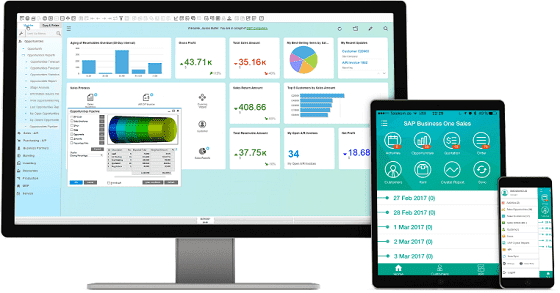 Why Life Sciences Companies Need ERP: Streamlining Operations for Success
Why Life Sciences Companies Need ERP: Streamlining Operations for Success

In the ever-evolving world of life sciences, companies are constantly faced with the challenges of managing complex processes, complying with stringent regulations, and ensuring the delivery of safe and effective products. With the immense growth and rapid technological advancements in this industry, it has become imperative for life sciences companies to adopt efficient and integrated systems to drive their operations. One such system that has proven to be indispensable is Enterprise Resource Planning (ERP). In this article, we will explore the reasons why life sciences companies need ERP to streamline their operations and stay ahead in the competitive landscape.
- Enhanced Regulatory ComplianceThe life sciences industry operates under a myriad of regulations, including those imposed by the Food and Drug Administration (FDA) and other global regulatory bodies. Compliance with these regulations is not only mandatory but also critical to ensure patient safety and maintain the reputation of the company. ERP systems specifically designed for life sciences provide built-in compliance features, such as electronic batch records, document control, and audit trails, which streamline regulatory processes. By automating compliance workflows and maintaining comprehensive data integrity, life sciences companies can reduce the risk of non-compliance and mitigate potential regulatory penalties.
- Efficient Supply Chain ManagementEffective supply chain management is crucial for life sciences companies to ensure the timely availability of raw materials, manage inventory levels, and meet customer demand. ERP solutions provide end-to-end visibility into the supply chain, allowing companies to optimize procurement, track inventory in real-time, and synchronize production activities. With an integrated ERP system, life sciences companies can minimize stock-outs, improve forecasting accuracy, and enhance overall supply chain efficiency. This, in turn, leads to reduced costs, improved customer satisfaction, and a competitive edge in the market.
- Streamlined Manufacturing ProcessesThe manufacturing processes in the life sciences industry are highly intricate and demand precision and control. ERP systems enable life sciences companies to streamline their manufacturing processes by integrating all aspects of production, including formulation, packaging, quality control, and compliance. By automating workflows and capturing data at every stage, ERP systems provide real-time insights into production operations, enabling companies to identify bottlenecks, optimize resource allocation, and improve overall productivity. Moreover, ERP solutions facilitate seamless collaboration among different departments, fostering cross-functional communication and promoting operational excellence.
- Comprehensive Quality ManagementMaintaining the highest standards of quality is paramount in the life sciences industry. ERP systems offer robust quality management modules that encompass all aspects of quality control, assurance, and compliance. These modules facilitate the implementation of standardized operating procedures, enforce quality checks at critical stages, and enable efficient deviation management. By integrating quality management processes within the ERP system, life sciences companies can enhance traceability, ensure product integrity, and effectively address any quality-related issues. This, in turn, helps in building customer trust and safeguarding the company’s reputation.
- Data-driven Decision MakingIn today’s data-driven world, access to accurate and real-time information is crucial for making informed decisions. ERP systems act as centralized repositories of data, capturing information from various departments and providing comprehensive analytics and reporting capabilities. Life sciences companies can leverage these features to gain valuable insights into their operations, monitor key performance indicators, and identify areas for improvement. By facilitating data-driven decision making, ERP systems enable companies to optimize their processes, drive innovation, and stay agile in an increasingly competitive market.
For life sciences companies aiming to navigate the complexities of the industry and drive growth while ensuring compliance, SAP Business One emerges as a comprehensive ERP solution. With its tailored functionalities for regulatory compliance, supply chain management, streamlined manufacturing processes, quality control, and data-driven decision making, SAP Business One empowers life sciences companies to enhance operational efficiency, maintain product quality, and achieve long-term success.


